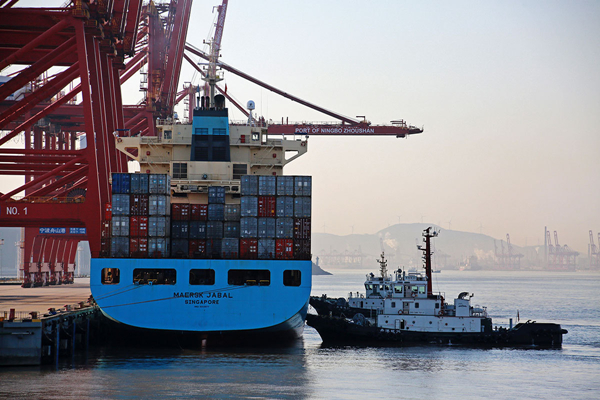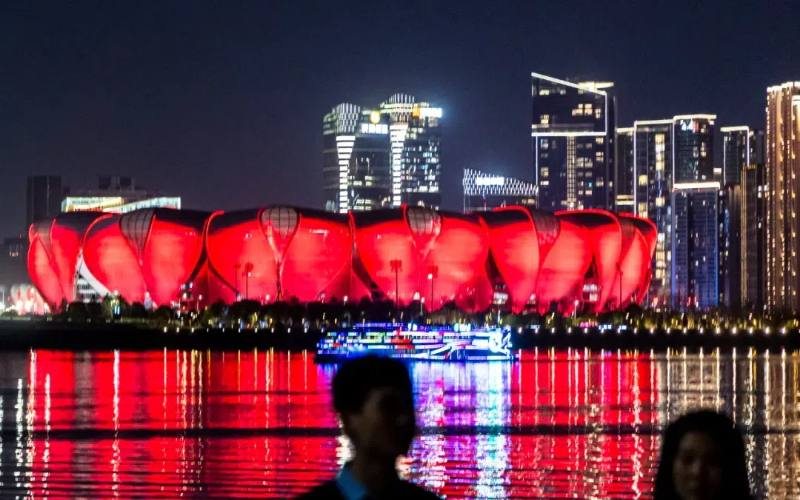Achievements of Zhejiang FTZ highlighted

A container ship anchors at Ningbo-Zhoushan Port, waiting to be unloaded. [Photo by Yao Feng/For China Daily]
The Information Office of the Zhejiang Provincial Government held a news conference to provide an overview on the recent development of the China (Zhejiang) Free Trade Pilot Zone on Jan 20.
The Zhejiang FTZ was established in the port city of Zhoushan and its outlying islands in April 2017, with the goal of forming a complete industrial chain for the oil and gas industry. After receiving approval from the State Council, the Zhejiang FTZ doubled its coverage area in September last year, adding another 119.5 square kilometers of area in Zhejiang province, namely the Ningbo area (46 sq km), the Hangzhou area (37.51 sq km), and the Jinhua-Yiwu area (35.99 sq km), to its existing Zhoushan area (120 sq km). The three new areas have been tasked with different development goals based on their own unique strengths.
Since the Zhejiang FTZ was expanded, it has added 13,000 market entities, secured 268 investment projects, worth 377.7 billion yuan ($58.32 billion), as well as set out more than 40 favorable policies regarding finance, taxation, talent, and other areas, making outstanding contributions to the province's foreign trade growth.
Zhejiang's annual increase in exports for the past three years has been the highest among all provincial-level regions in China. The province's actual use of foreign investment saw a double-digit growth to over $15 billion in 2020, a record high.
The news conference highlighted 10 major events in pushing forward reforms and opening-up in the Zhejiang FTZ.
On Nov 30 last year, the State Post Bureau simplified the approval process of business licenses for international express deliveries to the Ningbo, Hangzhou, and Jinhua-Yiwu areas of the Zhejiang FTZ, as it had done so to the Zhoushan area before. As a result, Zhejiang's express delivery volume soared 35.3 percent year-on-year to 17.9 billion parcels in 2020, with Jinhua's express delivery volume topping all Chinese cities for the first time in history.
On Dec 28 last year, the Hangzhou area launched a renovation and expansion project, with 2.4 billion yuan ($370 million) in investment, on international freight depots and parking aprons at the Hangzhou International Airport. The airport also became the first port in Zhejiang to adopt border-exiting tax rebates. In addition, Zhejiang officially started to run a trade market for natural gas, the fifth of its kind in the country, on the same day, which is expected to help stabilize the price of fuel gases.
In December 2020, Zhejiang Petroleum&Chemical Co was approved to import 14 million metric tons of raw petroleum, to export 2 million tons of refined oil products, and to export 390,000 tons of low-sulfur marine fuel oil, meaning that the company became the country's only private enterprise to be qualified to handle the importation and exportation of raw petroleum, refined oil products, as well as low-sulfur oil.
On Dec 31, the Ningbo area secured the province's first-ever QFLP (Qualified Foreign Limited Partner) program. The approval of the new business mode will facilitate strategic investors abroad to get involved in domestic equity investment programs.





 play
play